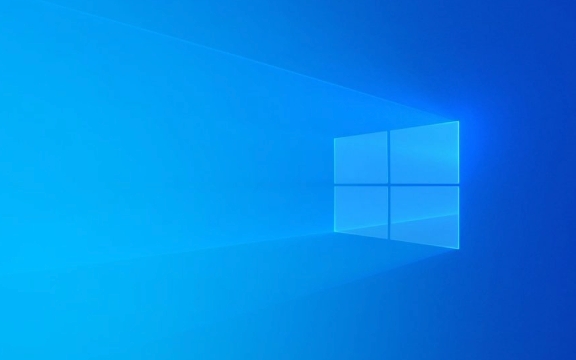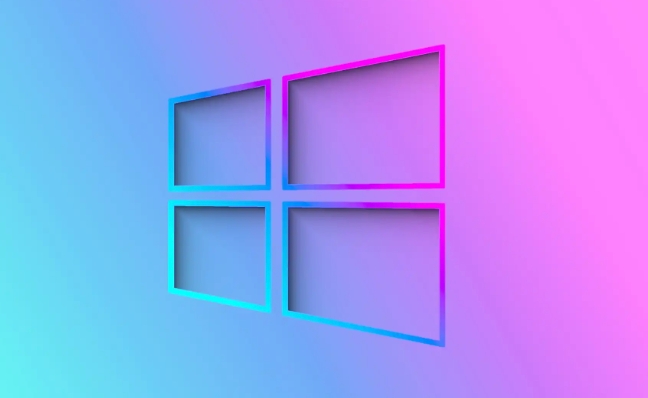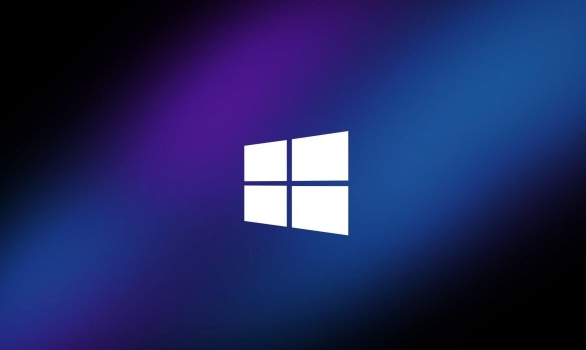Solutions to the "CRITICAL_PROCESS_DIED" blue screen error include: 1. Uninstall or roll back the newly installed driver, especially the graphics card driver; 2. Disable or uninstall third-party security software; 3. Use clean boot mode to troubleshoot conflict software; 4. Replug and unplug the memory stick and run Windows memory diagnostic tools or MemTest86 to detect memory problems; 5. Scan and repair system files through SFC and DISM tools; 6. View event viewer logs and use WinDbg to analyze dump files to locate specific reasons. In most cases, follow the above steps to solve the problem.

"CRITICAL_PROCESS_DIED" is one of the common blue screen errors in Windows systems and usually occurs when the critical process of the system is terminated unexpectedly. This problem may be caused by driver incompatibility, memory issues, or system files corruption. Although it looks scary, it can be troubleshooted and fixed in most cases.

Check for recently installed drivers or software
In many cases, the blue screen of "CRITICAL_PROCESS_DIED" is caused by newly installed hardware drivers or third-party software. In particular, graphics card drivers, antivirus software, virtual machine tools and other programs that have an impact on the underlying system are more likely to cause such problems.
- Try to uninstall the recently installed driver : For example, after you have just updated the graphics card driver, you start to frequently blue screens, you can try rolling back or uninstalling the driver.
- Disable or uninstall third-party security software : Some antivirus software conflicts with the system will cause core processes to crash.
- Use clean boot mode : Enter clean boot through
msconfigor系統(tǒng)配置, only load the most basic system services, and see if there will be a blue screen.
If you are not sure which driver or software is causing it, you can rule out the test one by one.

Check for memory issues (RAM)
This error is often associated with memory, especially physical memory sticks that are poorly contacted or damaged.
- Re-plug and unplug the memory stick : After shutting down the machine, open the chassis, unplug the memory stick with an eraser, and then plug it back to ensure good contact.
- Run Windows Memory Diagnostic Tool :
- Press
Win Rto entermdsched.exe - Select "Reboot now and check memory"
- Press
- Use MemTest86 for deep detection : If you don't find any problems with Windows' built-in tools but the problems are still the same, it is recommended to use MemTest86 for more comprehensive testing.
If you find that there is indeed a problem with the memory, replacing a new memory stick is the most direct solution.

Scan system file integrity
System-critical processes crashes may also be caused by system files being corrupted or lost.
-
Scan with SFC : Open a command prompt under Administrator permissions and enter:
sfc /scannow
This scans all protected system files and tries to fix the damaged parts.
Use the DISM tool to repair the system image : If SFC does not find the problem, you can continue to run the following command:
DISM /Online /Cleanup-Image /RestoreHealth
These two tools can effectively fix the blue screen problem caused by abnormal system file.
View system logs and dump files
If you want to locate the problem more deeply, you can view the system log and the dump files generated by the blue screen.
Event Viewer : Open "Event Viewer" and search for error messages recorded before and after the blue screen occurs in "Windows Log" -> "System".
Use WinDbg to analyze dump files : Windows will generate a minidump file on blue screen, with the default path:
C:\Windows\Minidump\
Open these files using the WinDbg tool provided by Microsoft to see which module caused the death of a critical process.
This step is a little more complex, but is very useful for advanced users or IT support staff.
Basically, these common reasons and solutions are all about them. Although "CRITICAL_PROCESS_DIED" sounds serious, most of the time, as long as you follow the steps to find out the problem quickly.
The above is the detailed content of Diagnosing 'CRITICAL_PROCESS_DIED' BSOD in Windows. For more information, please follow other related articles on the PHP Chinese website!

Hot AI Tools

Undress AI Tool
Undress images for free

Undresser.AI Undress
AI-powered app for creating realistic nude photos

AI Clothes Remover
Online AI tool for removing clothes from photos.

Clothoff.io
AI clothes remover

Video Face Swap
Swap faces in any video effortlessly with our completely free AI face swap tool!

Hot Article

Hot Tools

Notepad++7.3.1
Easy-to-use and free code editor

SublimeText3 Chinese version
Chinese version, very easy to use

Zend Studio 13.0.1
Powerful PHP integrated development environment

Dreamweaver CS6
Visual web development tools

SublimeText3 Mac version
God-level code editing software (SublimeText3)

Hot Topics
 Windows 11 slow boot time fix
Jul 04, 2025 am 02:04 AM
Windows 11 slow boot time fix
Jul 04, 2025 am 02:04 AM
The problem of slow booting can be solved by the following methods: 1. Check and disable unnecessary booting programs; 2. Turn off the quick boot function; 3. Update the driver and check disk health; 4. Adjust the number of processor cores (only for advanced users). For Windows 11 systems, first, the default self-start software such as QQ and WeChat are disabled through the task manager to improve the startup speed; if you use dual systems or old hardware, you can enter the power option to turn off the quick boot function; second, use the device manager to update the driver and run the chkdsk command to fix disk errors, and it is recommended to replace the mechanical hard disk with SSD; for multi-core CPU users, the kernel parameters can be adjusted through bcdedit and msconfig to optimize the startup efficiency. Most cases can be corrected by basic investigation
 How to Change Font Color on Desktop Icons (Windows 11)
Jul 07, 2025 pm 12:07 PM
How to Change Font Color on Desktop Icons (Windows 11)
Jul 07, 2025 pm 12:07 PM
If you're having trouble reading your desktop icons' text or simply want to personalize your desktop look, you may be looking for a way to change the font color on desktop icons in Windows 11. Unfortunately, Windows 11 doesn't offer an easy built-in
 Fixed Windows 11 Google Chrome not opening
Jul 08, 2025 pm 02:36 PM
Fixed Windows 11 Google Chrome not opening
Jul 08, 2025 pm 02:36 PM
Fixed Windows 11 Google Chrome not opening Google Chrome is the most popular browser right now, but even it sometimes requires help to open on Windows. Then follow the on-screen instructions to complete the process. After completing the above steps, launch Google Chrome again to see if it works properly now. 5. Delete Chrome User Profile If you are still having problems, it may be time to delete Chrome User Profile. This will delete all your personal information, so be sure to back up all relevant data. Typically, you delete the Chrome user profile through the browser itself. But given that you can't open it, here's another way: Turn on Windo
 How to fix second monitor not detected in Windows?
Jul 12, 2025 am 02:27 AM
How to fix second monitor not detected in Windows?
Jul 12, 2025 am 02:27 AM
When Windows cannot detect a second monitor, first check whether the physical connection is normal, including power supply, cable plug-in and interface compatibility, and try to replace the cable or adapter; secondly, update or reinstall the graphics card driver through the Device Manager, and roll back the driver version if necessary; then manually click "Detection" in the display settings to identify the monitor to confirm whether it is correctly identified by the system; finally check whether the monitor input source is switched to the corresponding interface, and confirm whether the graphics card output port connected to the cable is correct. Following the above steps to check in turn, most dual-screen recognition problems can usually be solved.
 Fixed the failure to upload files in Windows Google Chrome
Jul 08, 2025 pm 02:33 PM
Fixed the failure to upload files in Windows Google Chrome
Jul 08, 2025 pm 02:33 PM
Have problems uploading files in Google Chrome? This may be annoying, right? Whether you are attaching documents to emails, sharing images on social media, or submitting important files for work or school, a smooth file upload process is crucial. So, it can be frustrating if your file uploads continue to fail in Chrome on Windows PC. If you're not ready to give up your favorite browser, here are some tips for fixes that can't upload files on Windows Google Chrome 1. Start with Universal Repair Before we learn about any advanced troubleshooting tips, it's best to try some of the basic solutions mentioned below. Troubleshooting Internet connection issues: Internet connection
 Want to Build an Everyday Work Desktop? Get a Mini PC Instead
Jul 08, 2025 am 06:03 AM
Want to Build an Everyday Work Desktop? Get a Mini PC Instead
Jul 08, 2025 am 06:03 AM
Mini PCs have undergone
 How to clear the print queue in Windows?
Jul 11, 2025 am 02:19 AM
How to clear the print queue in Windows?
Jul 11, 2025 am 02:19 AM
When encountering the problem of printing task stuck, clearing the print queue and restarting the PrintSpooler service is an effective solution. First, open the "Device and Printer" interface to find the corresponding printer, right-click the task and select "Cancel" to clear a single task, or click "Cancel all documents" to clear the queue at one time; if the queue is inaccessible, press Win R to enter services.msc to open the service list, find "PrintSpooler" and stop it before starting the service. If necessary, you can manually delete the residual files under the C:\Windows\System32\spool\PRINTERS path to completely solve the problem.







